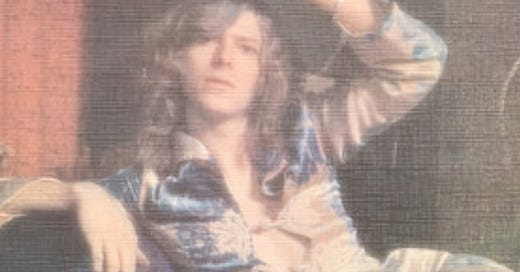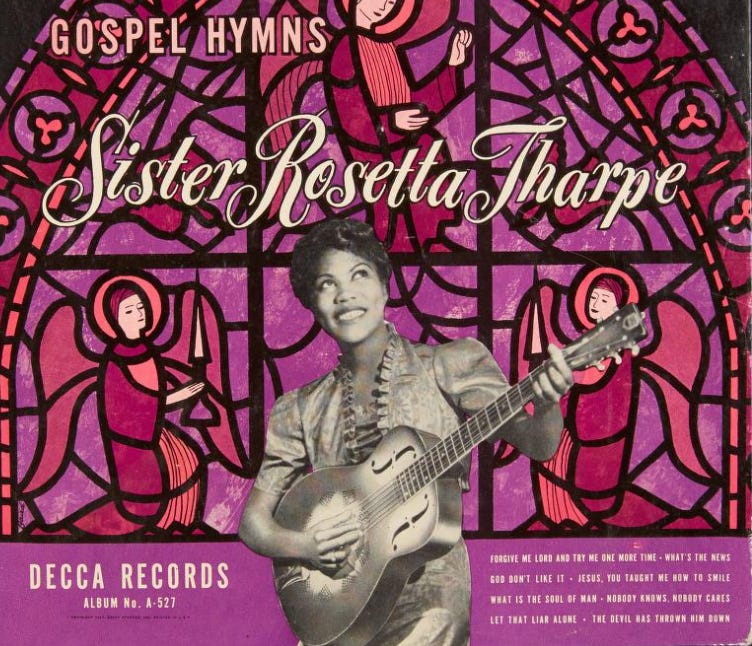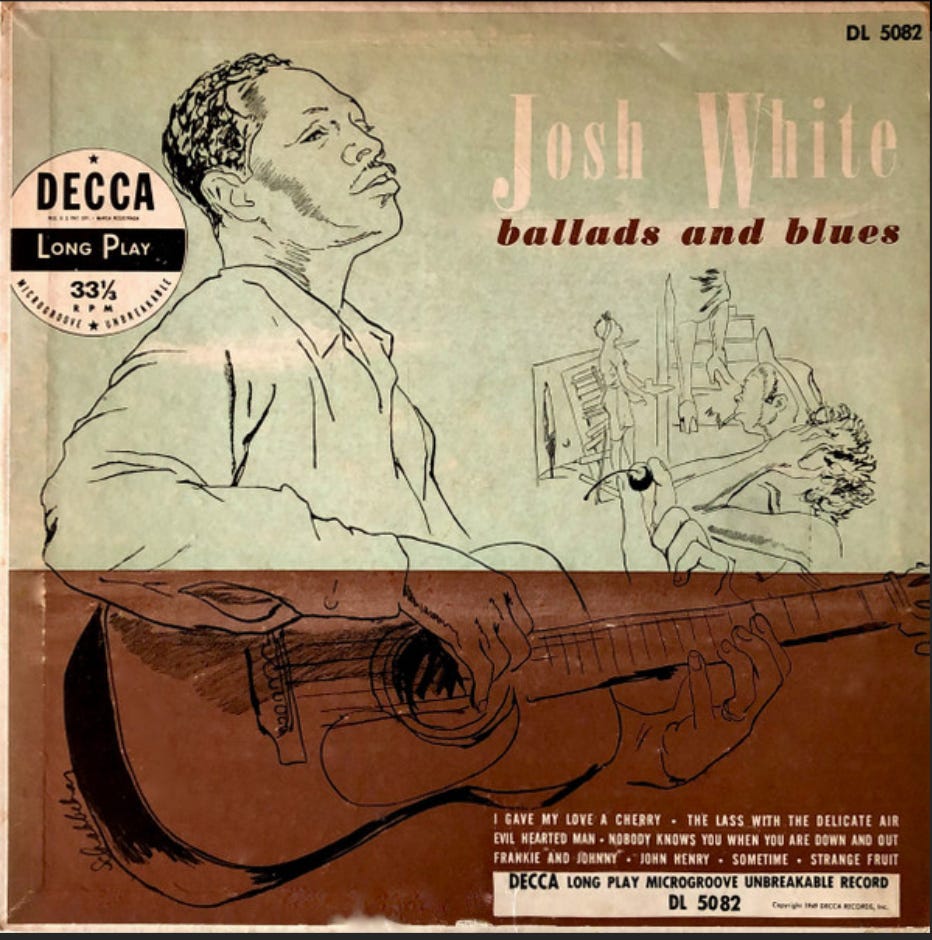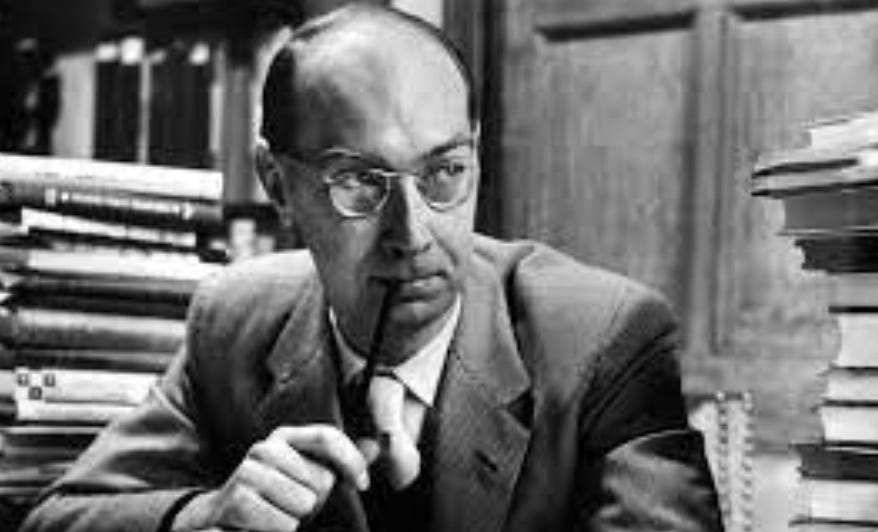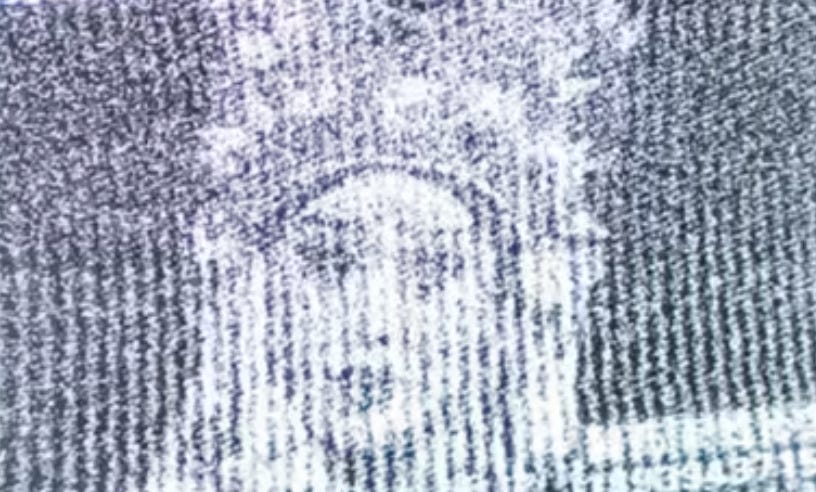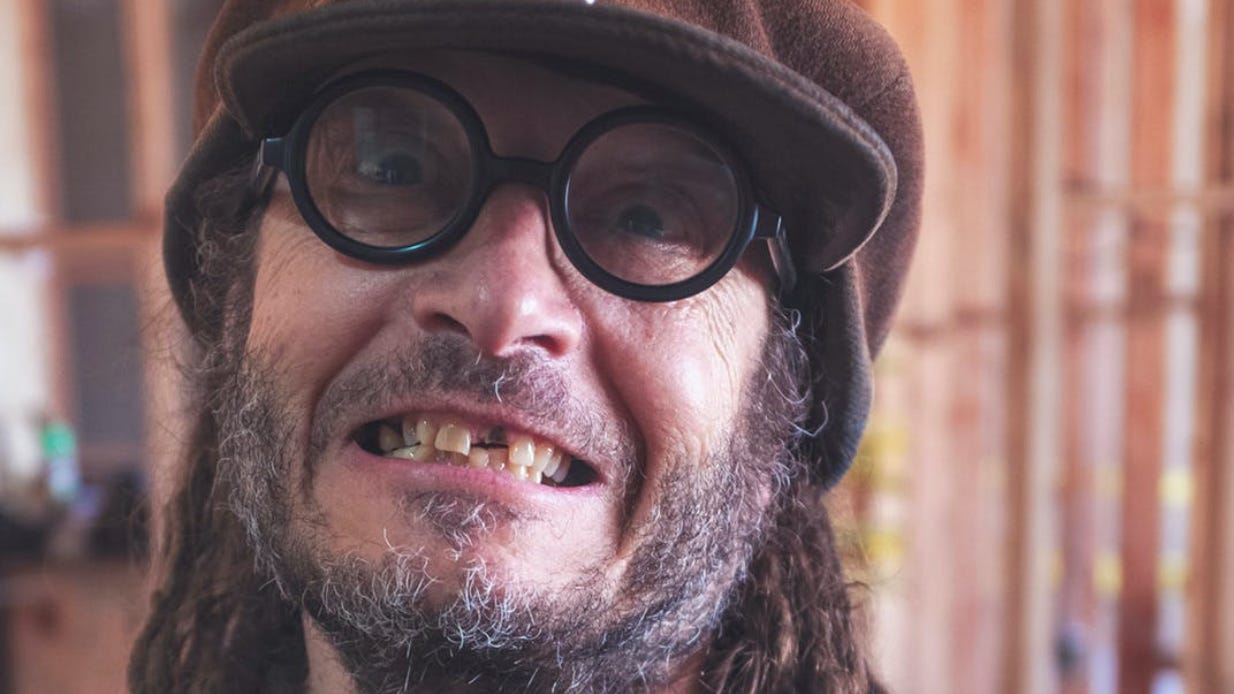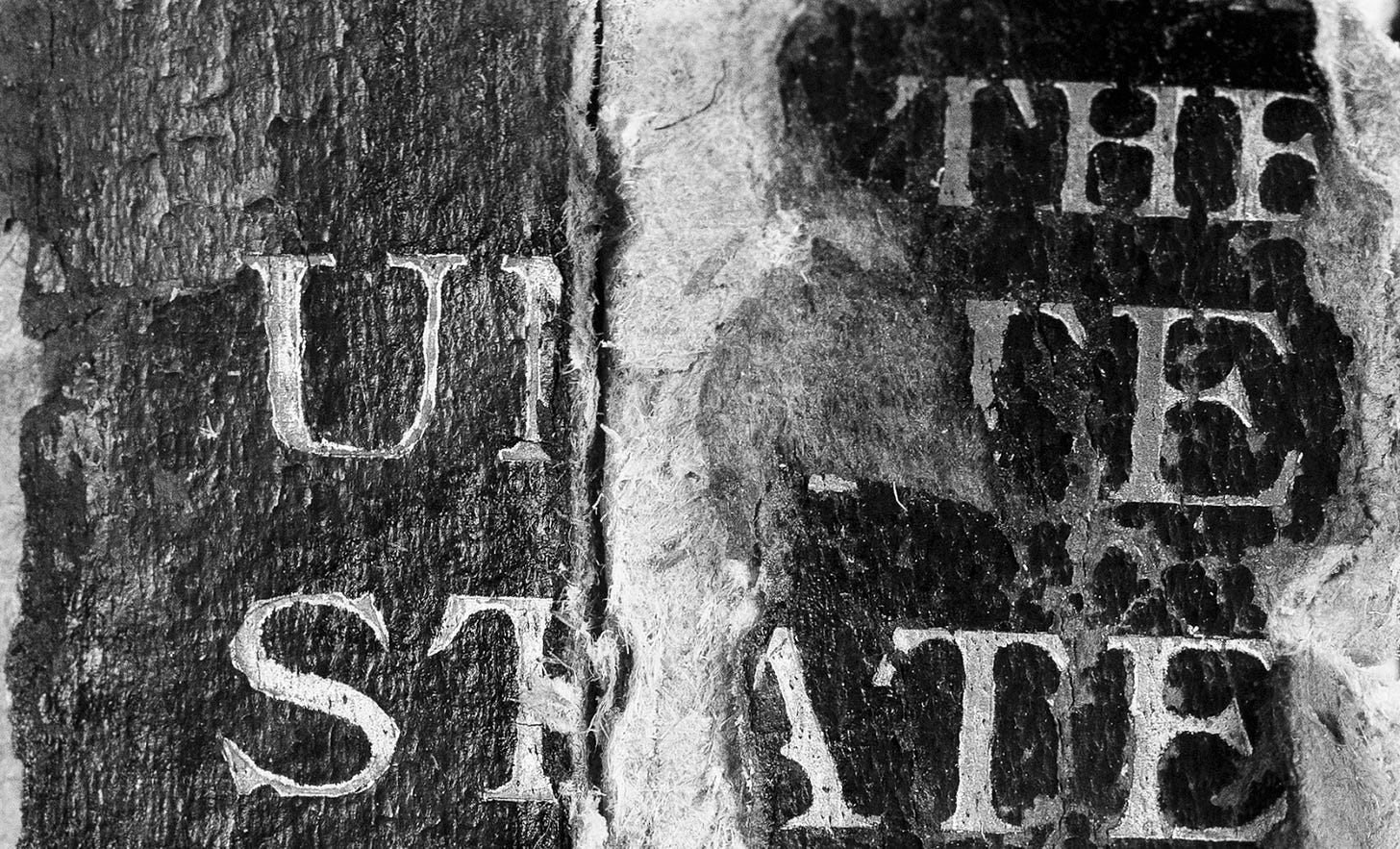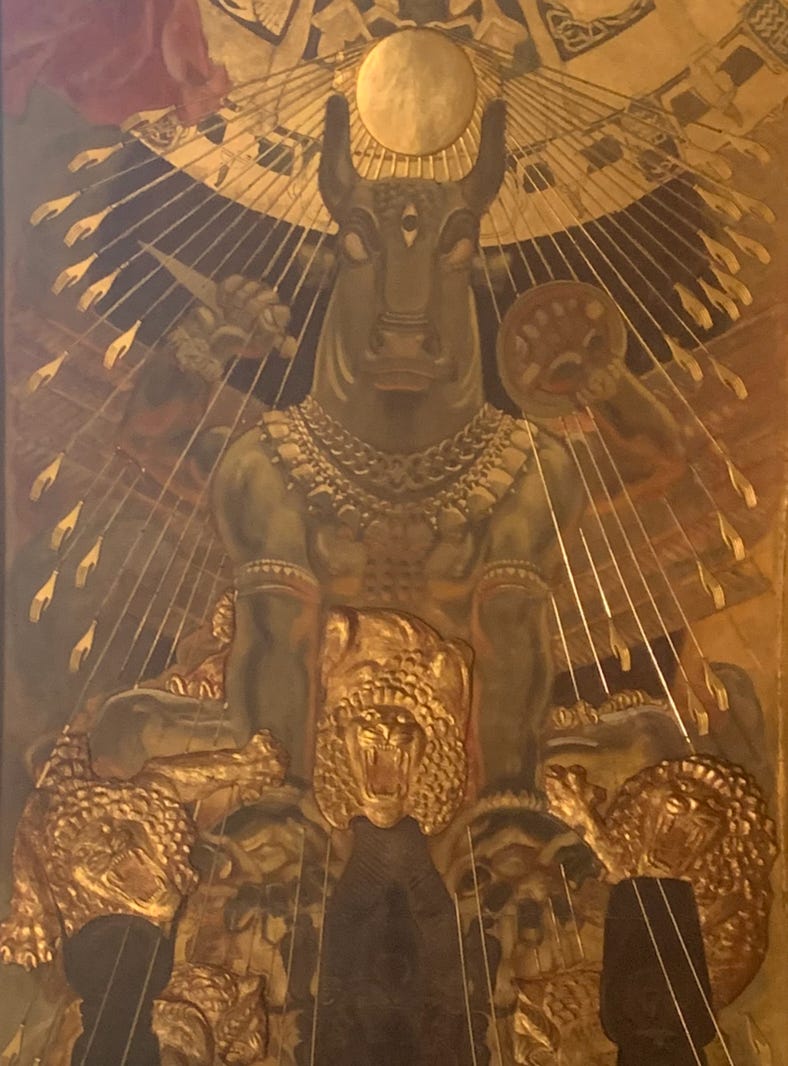Candle Blowing for the Pops and Crackles
“Play is the answer to how anything new comes about.”― Jean Piaget
I am writing from a house on postcard-beautiful Long Lake, Maine on a whirlwind family trip that is taking us all around the East Coast (Gloucester tomorrow) before off to the edge of Lake Erie in Ohio to see the in-laws. I spent the late part of last evening listening to Sister Rosetta Tharpe and Josh White 78s from my friend Courtney’s father’s collection while losing a deep game of double solitaire with my daughter. Kaya commented on the cracks and pops that came from the record as the needle unearthed the sounds of days gone by…and when I suggested that I actually liked them, she smiled knowingly as if we shared a new secret.
145 years ago today (in 1877 for those doing the math), Thomas Edison produced the first recording on his new machine, the phonograph, as he spoke the nursery rhyme Mary Had a Little Lamb. And while there is debate on what spurred him to first attempt to create this audio recording and playback device, and if he REALLY was the first person to do it, there is one thing that is indisputable: his phonograph and the resultant company he created to sell it changed the world. A year later, Edison would prophesize that the “phonograph will undoubtedly be liberally devoted to music" allowing music to be listened to anytime, almost anywhere (if, in those days, you had the money to pay for it and the strength to carry around the furniture that had players built into them!).
With the Edison Phonograph, the record business was born.
The pops and crackles? Those noises became byproducts of the records, sounds that became as familiar as car engines and leaf blowers. Listening to the old records last night and thinking about how great they sounded while not released even 70 years after the invention of the phonograph reminded me of how quickly and mightily grew an entire era, and entire industry. Edison gave us the recording button and allowed us to hear the past…know the craft of musicians whose careers had long-ended, inspire new artists who could now hear the beauty of the legends they learned about.
We take for granted in this modern day of smart devices, that allow us to record anything anywhere anytime, the power of recording that Edison helped to unleash. And even though it was a power initially held by a few record labels and producers who decided—with prejudice—who was to be recorded in America and who was not, the genius of Edison’s invention was its ability to scale in scope, to bring us to our present day where anyone everywhere can record and distribute their music while seeking guidance within the pops and crackles of records by Robert Johnson, Tito Puente, Billie Holiday, Moondog, Charlie Parker, the Supremes, the Velvet Underground, Wynona Carr and thousands of others.
Happy birthday to the phonograph!
Top 30 Most Expensive Items Sold on Discogs in June 2022
Why is a 2001 copy of a record by Röyksopp being sold for around $6000 when it went for only $13 a few years ago? Looks like the limited edition (of 100) record’s cover is artwork made and spray painted by Banksy!
Philip Larkin at 100 Writers reflect on the poet’s life, work and legacy, a century after his birth.
English poet Philip Larkin turned 100 this week, and there is a lot being written about him to mark his centennial. The above article is my favorite piece that has been published, seeing his legacy from the thoughts of other writers. As discussed by Jonathan Clarke in his fascinating article Larkin in America, the poet did not have a care about his reputation in the USA…as it grew. He had distain if anything for his other large English speaking fan-place. that being said, it seems he didn’t love his homeland either…and hated the titles and honors that were attempted to be bestowed upon him. That being said, he was an incredible poet as is demonstrated below.
Telluria by Vladimir Sorokin — the past as future
“Sorokin is known as Russia’s literary provocateur-in-chief. The recipient of the Russian Booker and Andrei Bely prizes, he has been accused of cannibalism and pornography and had his books thrown into a huge cardboard toilet outside the Bolshoi Theatre by a pro-Kremlin youth group.”
Great interview with punk rock legend and genuinely great guy and music fan Keith Morris. Still love watching the Circle Jerks footage from Decline of Western Civilization Pt.1 and his follow-up commentary in Decline Pt. 3.
Billionaire Ken Griffin Outbid Crypto Collective for the U.S. Constitution to ‘Protect’ It
This is a fascinating article that explores the new world of decentralized business models (called DAOs) and how a specific DAO (that I BELIEVE included Elon Musk’s brother) tried to buy the Constitution.
Made To Be Broken: Richard Albert On The Difficulty Of Amending The U.S. Constitution
A great follow-up to the above story with music industry vet Mark Leviton interviewing professor Richard Albert on the Constitution….how it needs to be updated and how hard it is to accomplish that need. The Sun really is a fantastic magazine.
Aubade
By: Philip Larkin
I work all day, and get half-drunk at night.
Waking at four to soundless dark, I stare.
In time the curtain-edges will grow light.
Till then I see what's really always there:
Unresting death, a whole day nearer now,
Making all thought impossible but how
And where and when I shall myself die.
Arid interrogation: yet the dread
Of dying, and being dead,
Flashes afresh to hold and horrify.
The mind blanks at the glare. Not in remorse
- The good not done, the love not given, time
Torn off unused - nor wretchedly because
An only life can take so long to climb
Clear of its wrong beginnings, and may never;
But at the total emptiness for ever,
The sure extinction that we travel to
And shall be lost in always. Not to be here,
Not to be anywhere,
And soon; nothing more terrible, nothing more true.
This is a special way of being afraid
No trick dispels. Religion used to try,
That vast, moth-eaten musical brocade
Created to pretend we never die,
And specious stuff that says No rational being
Can fear a thing it will not feel, not seeing
That this is what we fear - no sight, no sound,
No touch or taste or smell, nothing to think with,
Nothing to love or link with,
The anasthetic from which none come round.
And so it stays just on the edge of vision,
A small, unfocused blur, a standing chill
That slows each impulse down to indecision.
Most things may never happen: this one will,
And realisation of it rages out
In furnace-fear when we are caught without
People or drink. Courage is no good:
It means not scaring others. Being brave
Lets no one off the grave.
Death is no different whined at than withstood.
Slowly light strengthens, and the room takes shape.
It stands plain as a wardrobe, what we know,
Have always known, know that we can't escape,
Yet can't accept. One side will have to go.
Meanwhile telephones crouch, getting ready to ring
In locked-up offices, and all the uncaring
Intricate rented world begins to rouse.
The sky is white as clay, with no sun.
Work has to be done.
Postmen like doctors go from house to house.
Whoever after due and proper warning shall be heard to utter the abominable word "Frisco", which has no linguistic or other warrant, shall be deemed guilty of a High Misdemeanor, and shall pay into the Imperial Treasury as penalty the sum of twenty-five dollars. -Emperor Norton, August 12, 1869

